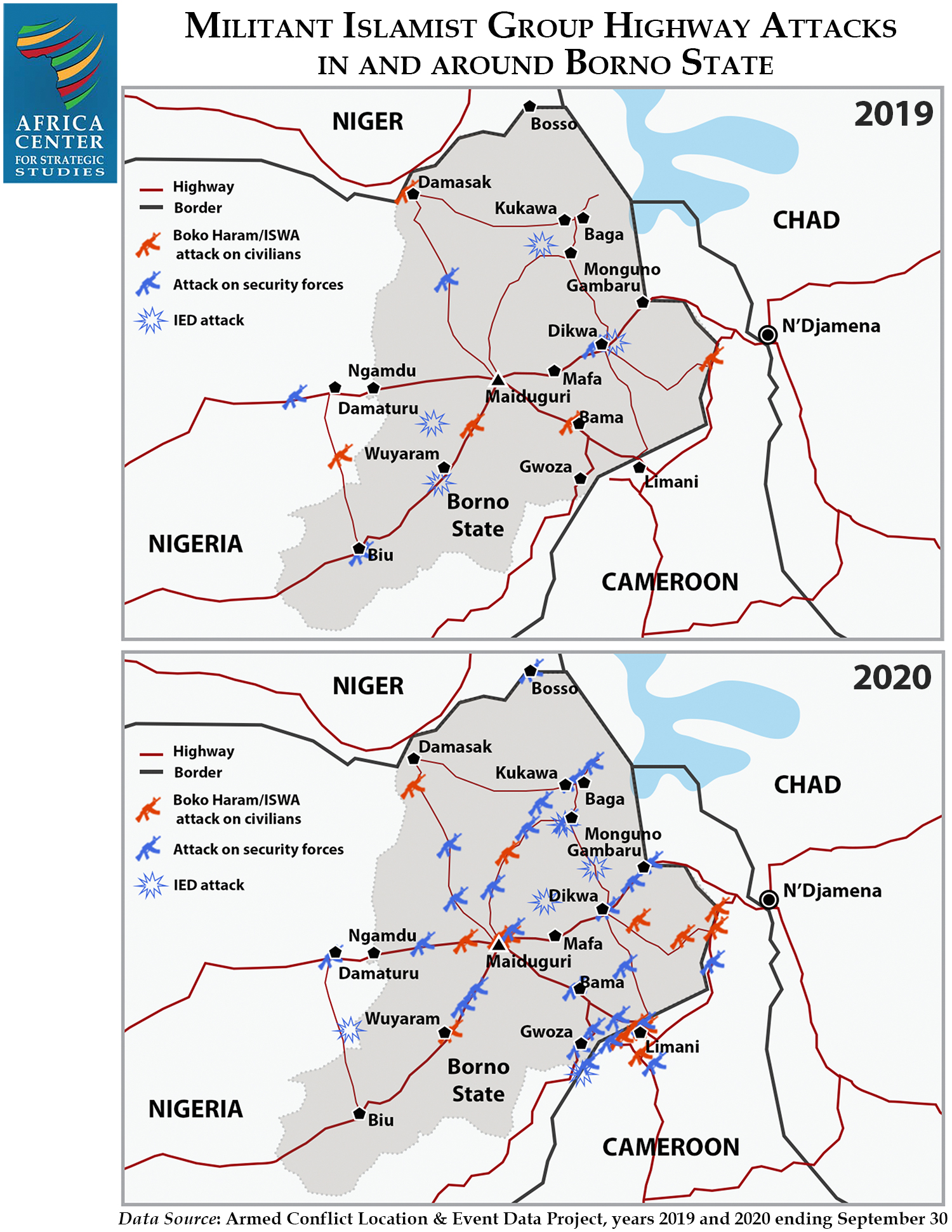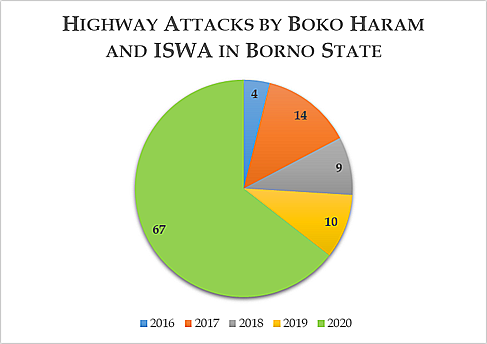- Violent events linked to Boko Haram and its offshoot the Islamic State in West Africa (ISWA) on Borno State’s main roadways have spiked almost sixfold (to 67 episodes) in the past year. Reported fatalities linked to highway attacks rose more than fourfold during this time (to 259 deaths).
- Highway attacks now represent 13 percent of the violent events linked to Boko Haram and ISWA in Borno State. Violent incidents during these highway attacks include robbery, abduction, burning vehicles, and summary execution. Reports suggest that 90 percent of the militants’ abductions in 2020 came from such highway events. Robberies also provide a significant source of revenue and military supplies for the militants.
Data source: Armed Conflict Location & Event Data Project, years ending September 30.
- The actual number of highway attacks is likely higher. As these episodes have grown more common, many of the ambushes on military and civilian vehicles go unreported. Even civilian convoys under military escort are targeted. Similar attacks have been noted just over the border in Cameroon, albeit on a smaller scale.
- Via their attacks on key supply routes, the militants have effectively laid siege to Borno State and its capital, Maiduguri. Food prices, already rising due to the effects of the COVID pandemic, have spiked by more than 50 percent over their year-on-year levels in Borno and the surrounding conflict-affected region. The unabated threat of militant attacks, furthermore, has inhibited local crop production that could help meet the food needs the region. Some 4.3 million people in Borno and its neighbor states are experiencing a food crisis or emergency, many of whom depend on food assistance that arrives by road.
Additional Resources
- Africa Center for Strategic Studies, “Boko Haram Violence against Civilians Spiking in Northern Cameroon,” Infographic, November 13, 2020.
- Africa Center for Strategic Studies, “African Militant Islamist Groups Set Record for Violent Activity,” Infographic, July 21, 2020.
- Daniel Eizenga, “Chad’s Escalating Fight Against Boko Haram,” Spotlight, April 20, 2020.
- Wendy Williams, “Shifting Borders: Africa’s Displacement Crisis and Its Security Implications,” Africa Center Research Paper No. 8, Africa Center for Strategic Studies, October, 2019.
- Africa Center for Strategic Studies, “Security Priorities for the New Nigerian Government,” Spotlight, February 25, 2019.
- Michael Sodipo, “Mitigating Radicalism in Northern Nigeria,” Africa Security Brief No. 26, Africa Center for Strategic Studies, August 2013.
- Joseph Siegle, “Boko Haram and the Isolation of Northern Nigeria,” in Boko Haram: Anatomy of a Crisis, Ioannis Mantzikos (ed.), (Bristol, U.K., e-International Relations), 2013.
- J. Peter Pham, “Boko Haram’s Evolving Threat,” Africa Security Brief No. 20, Africa Center for Strategic Studies, April 2012.
More on: Boko Haram Nigeria




